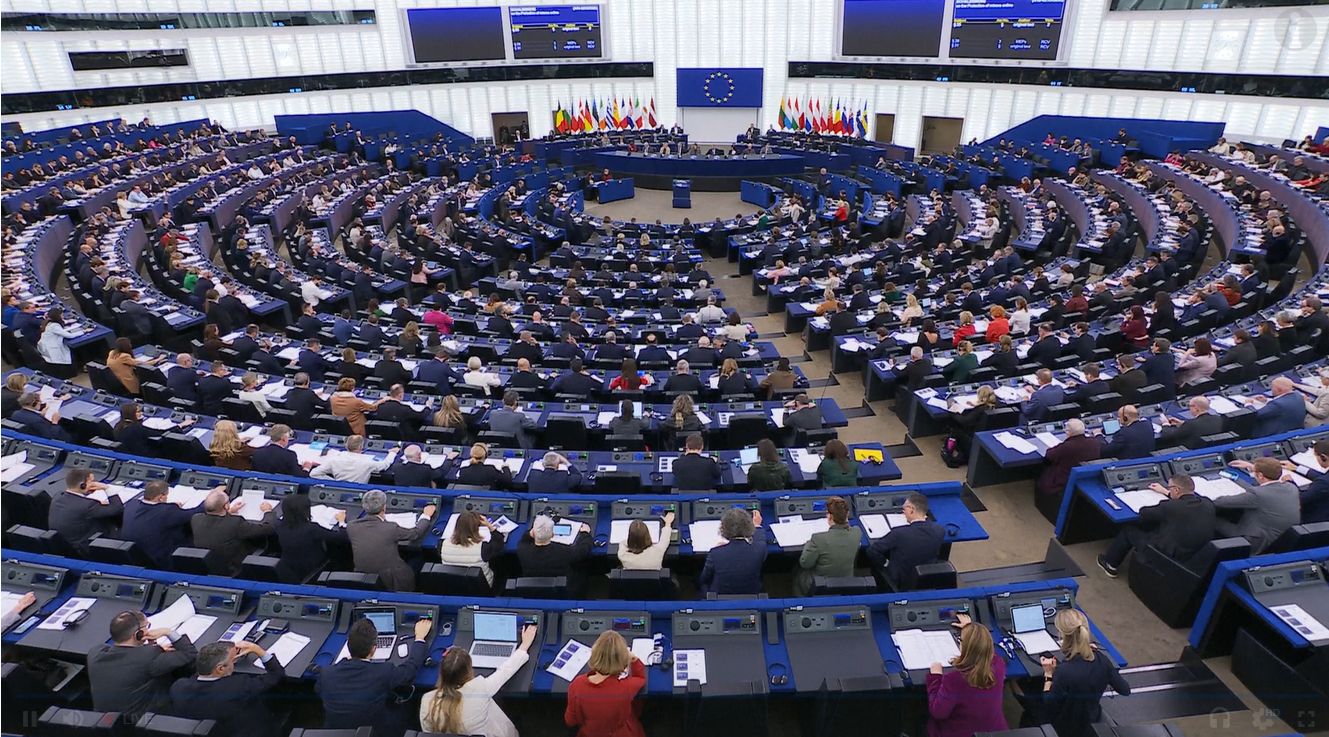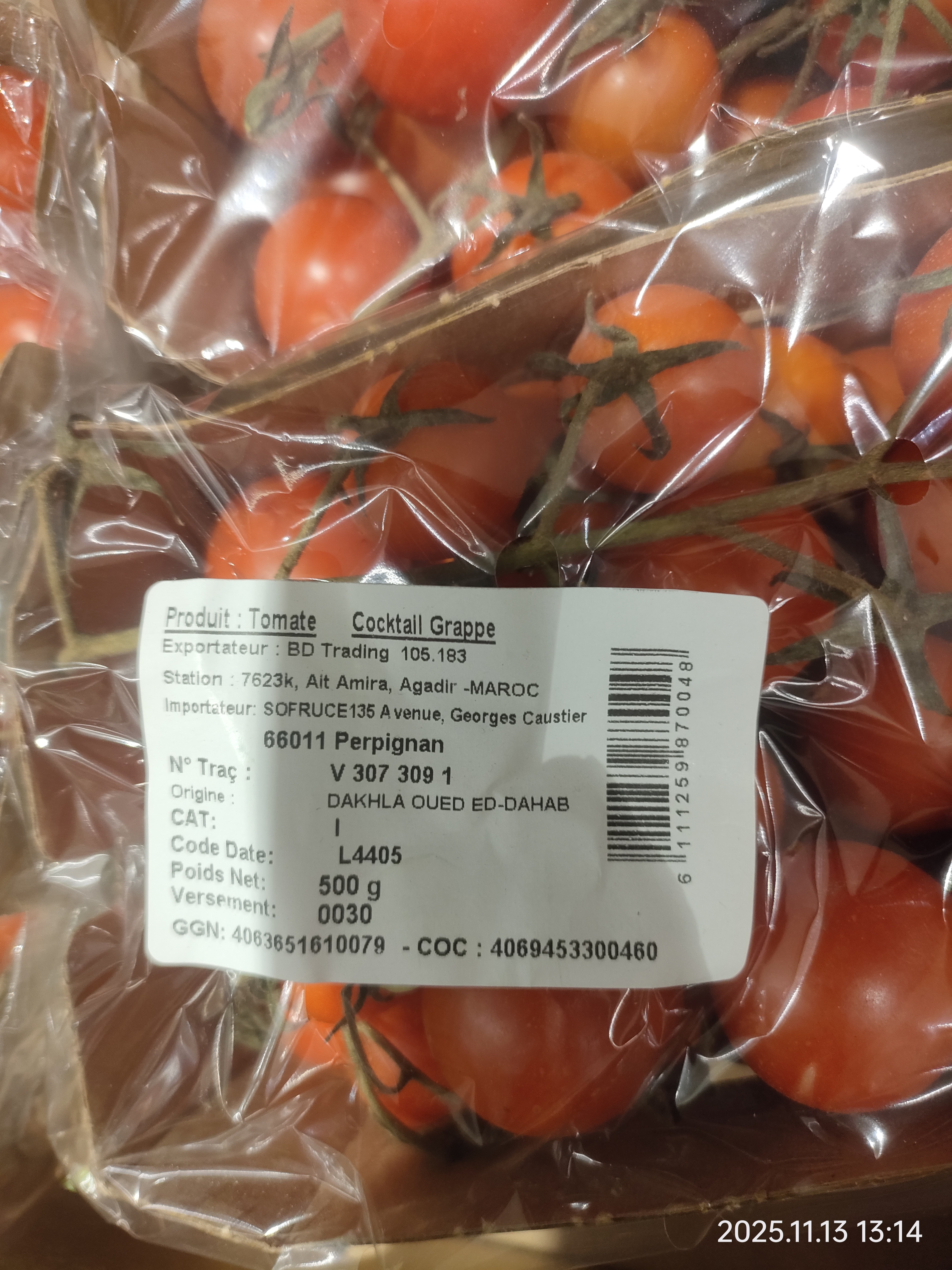
EU lawmakers today had a golden opportunity to stand up for European consumers. Backed by a solid majority, the Parliament came close to overturning the Commission.
In a strong show of disapproval, the European Parliament rejected the European Commission’s plan to rebrand produce from occupied Western Sahara as originating from Moroccan “regions”. A large majority voted against the proposal - but by the narrowest possible margin, the effort fell short of formally blocking it.
The Commission is controversially trying to circumvent earlier rulings by the EU Court of Justice (CJEU)
The vote concerned whether Parliament would object to the Commission’s proposed amendment to Delegated Regulation (EU) 2023/2429 on origin labelling for fruit and vegetables from Western Sahara. Specifically, the Commission in October 2025 proposed using the administrative region names that Morocco has unilaterally imposed on the territory over which it has no sovereignty: Laayoune-Sakia El Hamra and Dakhla-Oued Eddahab. These territorial divisions that are not recognised by the UN, the EU or the EU Court of Justice.
This step comes despite a clear EU Court of Justice ruling that products from Western Sahara must be labelled as originating from Western Sahara and cannot be described using Moroccan territorial designations.
The proposals by the EPP and PfE were only rejected with the smallest possible margin. Had one (!) more parliamentarian supported the EPP proposal, the delegated regulation would have been rejected. 360 votes were needed for the motion to pass.
However, only 359 voted in favour of the motion, with 188 objections and 76 abstentions.
On the PfE motion there were 465 objections, 157 in favour, 20 abstentions.
“The EPP motion was lost by a single vote, but the political message could not be clearer: a broad majority of MEPs rejected the Commission’s manoeuvre to bend EU rules to Morocco's benefit, and stood up for EU law, consumer rights and European farmers. That motions were tabled by political groups that tend to be more aligned with Rabat is indicative of a shift", says Sara Eyckmans of Western Sahara Resource Watch.
“This is a significant lobbying defeat for Morocco and a strong signal for the battles that ahead legality - and the livelihoods of European farmers - are finally back at the centre of parliamentary decision-making. Those French, Spanish and Italian MEPs who voted against or abstained will have serious questions to answer from their rural constituencies.”
During last week’s meeting of the Parliament’s Agriculture Committee, the Commission openly admitted that the concept of a “region of origin” was “the result of negotiations with Morocco”, and could provide no legal basis for departing from established CJEU case law and EU marketing standards. MEPs from across the political spectrum strongly criticised the proposal.
Two objections were tabled - one by the EPP and one by PfE - arguing that the Commission’s proposal violated EU law, misled consumers, and originated from negotiations with Morocco rather than legal necessity.
Although the objections gathered support, the required majority was not reached. The outcome does not negate the substantive concerns raised during the debate in the AGRI-committee:
- CJEU case law requires that products from Western Sahara be labelled “Western Sahara”, excluding any reference to Morocco or its regions. It is therefore doubtful that the Commission’s derogation is compatible with the Court’s jurisprudence.
- The EU has repeatedly faced annulments of its EU–Morocco measures by the CJEU. Adopting a delegated act that appears to contradict established rulings risks further litigation.
- The Commission admitted that the “region of origin” terminology came from negotiations with Morocco, raising questions about third-country influence on internal EU rules.
- Replacing the truthful indication “Western Sahara” with unfamiliar names (that also exist in other countries) obscures origin, misleads consumers, and creates the false impression of Moroccan sovereignty.
While Parliament did not block the delegated act, the debate revealed unprecedented cross-party concern about the proposal’s legality and its compliance with CJEU rulings. The decision is therefore unlikely to be the end of the matter - either institutionally or legally.
Since you're here....
WSRW’s work is being read and used more than ever. We work totally independently and to a large extent voluntarily. Our work takes time, dedication and diligence. But we do it because we believe it matters – and we hope you do too. We look for more monthly donors to support our work. If you'd like to contribute to our work – 3€, 5€, 8€ monthly… what you can spare – the future of WSRW would be much more secure. You can set up a monthly donation to WSRW quickly here.
These are the MEPs who voted for ignoring the CJEU
187 Parliamentarians voted to ignore the ruling of the CJEU, the interests of EU farmers, the rights of the EU consumers and the aspirations of the Saharawi people. Here they are.
Farmers block Azura warehouse in France and launch legal action
Growing pressure on EU–Morocco trade deal as French farmers today launch legal steps and storm Azura’s entry point for Western Sahara produce in Perpignan.
EU’s labelling chaos already hitting supermarkets
A packet of cherry tomatoes sold this week in a French supermarket illustrates the confusion triggered by the European Commission’s rushed attempt to adapt EU consumer and trade rules to Morocco’s claims over occupied Western Sahara.
EU Commission backtracks on labelling Western Sahara goods
What is EU's position on labelling of products from occupied Western Sahara? The EU Commission has now for the third time published a response to a parliamentary question on the matter, but the latest version fails to address the question.



